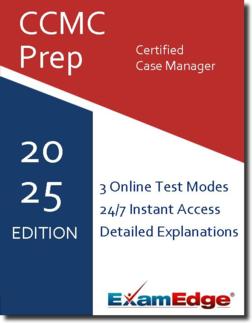Exam Edge partners with QBank.com to deliver a smarter, question-based way to study
Build mastery with exam-style items, rich explanations, and real-time analytics—all inside a modern platform purpose-built for question-based learning.
Watch the complete platform demo to see item authoring, practice test creation, explanations, analytics, and more in action.
Why Question-Based Learning Works
★
Active recall boosts retention
Answering questions strengthens memory more than passive review.
★
Immediate feedback fixes misconceptions
Explanations help correct errors at the moment of confusion.
★
Spaced & varied practice
Large item pools reduce rote memorization and improve transfer.
★
Metacognition & focus
Performance dashboards reveal weak areas to target your study time.
★
Exam realism reduces anxiety
Timed, exam-like practice improves readiness and confidence.
Evidence snapshot: Retrieval + feedback improves retention; spacing and varied items build durable learning; analytics target remediation.
Student Benefits in the Testing Environment
-
✓
Multiple practice modes
Exam, Practice, and Tutor modes—learn with feedback or test yourself under pressure.
-
✓
Mark for review & quick navigation
Flag items, jump between questions, and double-check answers before submitting.
-
✓
Detailed explanations when you want them
Reveal rationales instantly or at the end—control feedback to match your study style.
-
✓
Target weak areas fast
Filter by domain/objective, retake incorrect/blank items, and auto-build quizzes from miss history.
-
✓
Actionable performance analytics
Track accuracy by topic, time per item, score trends, and readiness indicators.
-
✓
Randomization that beats memorization
Shuffled items and answer choices build recall instead of rote memory.
-
✓
Accessible & mobile-friendly
Keyboard navigation, readable UI, and responsive layout for phones and tablets.



